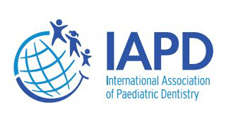What are dental sealants and how do they work?
April 24th, 2023

A dental sealant is a liquid that is applied to the teeth. The sealant hardens and provides a protective coating that is designed to reduce cavities and create a smoother tooth surface. Dental sealants are clear or white; they do not take away from the appearance of teeth. You can think about this treatment as being similar to varnish that protects a wood floor.
Sealants are not the same as fluoride treatments. The application is similar, but sealants are a semi-permanent protective coating. Dr. Dinah Abioro and our staff recommend that sealant applications for children begin soon after molars erupt, first molars around the age of six, and second molars around the age of 12.
Simple Application
Having sealants applied is not uncomfortable at all. First, your child's teeth will be cleaned and dried. A gel is applied, which helps the sealant adhere to the tooth, and then is rinsed away. Your child's teeth are dried again and the sealant is applied. A few seconds of exposure to a light source may be used to cure the sealant and make it semi-permanent. Sealants should last for a long time, normally between five and ten years.
Sealant Benefits
The coating on the surface of your child's teeth reduces the amount of acid contact. Normal acids in foods that are consumed can eat away at the surface of teeth. Bacteria also react to plaque formation and create more acid in the mouth. These small pits or weakened areas are prone to caries or cavity formation. Preventing cavities is a much better choice than drilling and filling damaged teeth.
A sealant also helps to smooth the chewing surfaces of your childn't teeth. The smoother surface is not as likely to retain small particles of food and bacteria. Your child's mouth stays cleaner and food is not left behind to form acids. The protective application can also be used on other teeth that have a rough surface, to protect the grooves or pits from decay.
After the sealant is applied, your child still needs to take proper care of his or her teeth. Regular brushing and flossing is required. Dr. Dinah Abioro may recommend fluoride treatments to strengthen and protect your child's teeth further.
If you have any concerns about sealants, please discuss them with during your child's next appointment at Dental Land Pediatrics. We want your little one's teeth to stay healthy for life.








